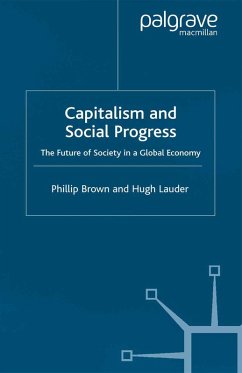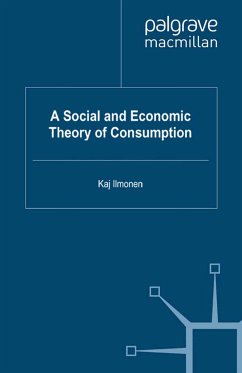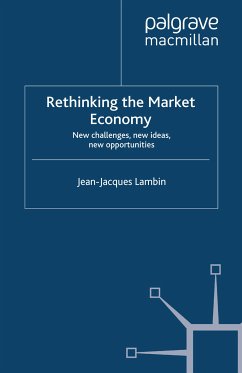
Capitalism and Social Progress (eBook, PDF)
The Future of Society in a Global Economy
Versandkostenfrei!
Sofort per Download lieferbar
40,95 €
inkl. MwSt.
Weitere Ausgaben:

PAYBACK Punkte
20 °P sammeln!
Why are America and Britain wealthier than ever but millions of children live in poverty, neighbourhoods want for basic amenities and the middle classes fear for their families, jobs and futures? The answer is not to be found in globalization, technological innovation, or our personal failings to adapt to changing circumstances as we are so often told. The answer lies mainly with the historical legacy of the 'golden era' and the obsession with market individualism. An obsession that the New Democrats in America and the New Labour in Britain have failed to exorcize. Yet the forces of knowledge-...
Why are America and Britain wealthier than ever but millions of children live in poverty, neighbourhoods want for basic amenities and the middle classes fear for their families, jobs and futures? The answer is not to be found in globalization, technological innovation, or our personal failings to adapt to changing circumstances as we are so often told. The answer lies mainly with the historical legacy of the 'golden era' and the obsession with market individualism. An obsession that the New Democrats in America and the New Labour in Britain have failed to exorcize. Yet the forces of knowledge-driven capitalism provide an unprecedented opportunity at the beginning of the twenty-first century to build societies based on the individual and collective intelligence of all. Capitalism and Social Progress shows how this can be achieved.
Dieser Download kann aus rechtlichen Gründen nur mit Rechnungsadresse in A, B, BG, CY, CZ, D, DK, EW, E, FIN, F, GR, HR, H, IRL, I, LT, L, LR, M, NL, PL, P, R, S, SLO, SK ausgeliefert werden.












